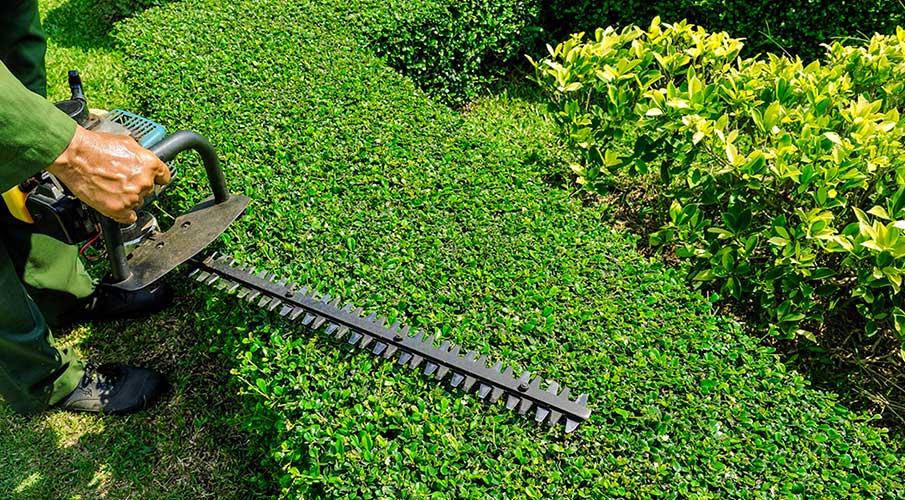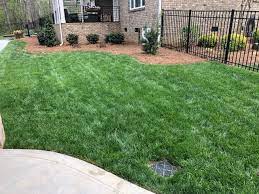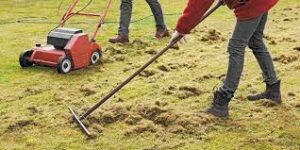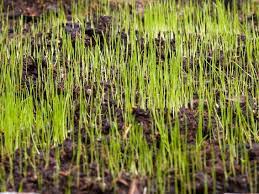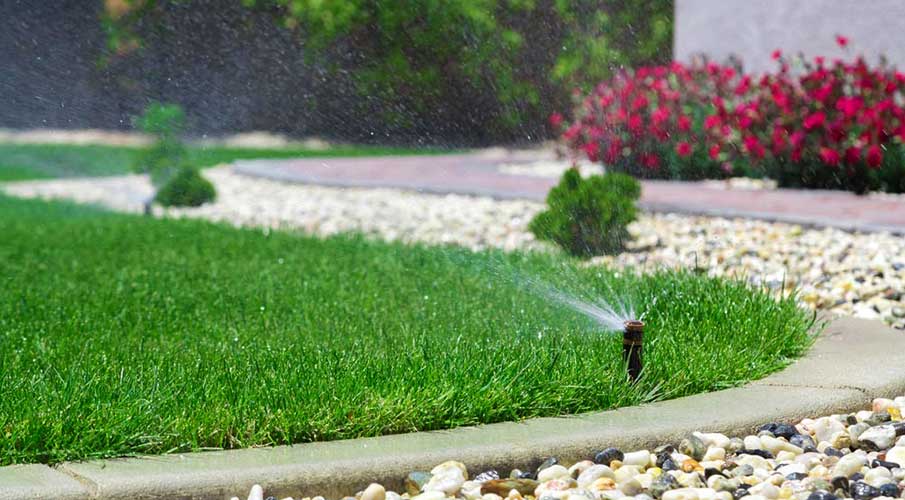If you’re looking to plant grass seed in Southwest Missouri during the summer months, it’s important to choose the right type of grass for the region’s climate and soil conditions. While fescue is a popular choice for lawns in the area, it’s not well-suited for summer planting. If your goal is to have a beautiful lawn, wait until fall and plant fescue. If you just want low-maintenance grass and don’t care about looks Bermuda grass is an excellent option that can thrive in the hot and dry conditions of Southwest Missouri. For more information about the difference between these grasses, read our article, Bermuda Grass vs Fescue.
Why Fescue Isn’t Ideal for Summer Planting
Fescue is a cool-season grass that thrives in cooler temperatures and moist soil conditions. It’s not well-suited for hot and dry summers, as the grass can become stressed and damaged in high temperatures. In fact, planting fescue in the summer can be a waste of time and money, as the grass may not survive the heat and dryness and you’ll spend a fortune to water it enough to make it work. Fescue is a beautiful grass, and the main turf choice for Southwest Missouri, but it needs to be planted in the fall.
Why Choose Bermuda Grass for Summer Planting
Bermuda grass is a warm-season grass that can thrive in the hot and dry conditions of Southwest Missouri. It has a deep root system that allows it to access water and nutrients from deeper soil layers, making it more drought-tolerant than fescue. Additionally, Bermuda grass is highly resilient and can handle heavy foot traffic and frequent mowing, making it an excellent choice for lawns and athletic fields. While it is a good summer grass seed, it will spend most of the spring, fall, and winter as an ugly brown color, but it is hardy.
The Seeding Process for Bermuda Grass
Once you’ve decided to plant Bermuda grass in the summer, it’s important to follow the proper seeding process to ensure success. One effective method for planting Bermuda grass is using an overseeder. An overseeder is a machine that will sow the seed directly into the soil. This method ensures that the seed has good seed/soil contact which improves the germination rate.
Before using an overseeder, it’s important to prepare the soil by removing any debris, such as rocks and sticks, and mowing the lawn to around 2″. This will lessen the work on the overseeder and create a better environment for the seeds to grow. Additionally, you’ll want to test the soil’s pH level to ensure that it’s within the optimal range of 6.0-7.0 for Bermuda grass.
Once the seed is planted, it’s important to fertilize the area to provide the young plants with the necessary nutrients for growth. The timing and amount of fertilizer will depend on the soil conditions and the specific type of Bermuda grass seed you’ve planted. Typically, you’ll want to fertilize once a month during the growing season, starting about 4-6 weeks after planting. Make sure to read the directions for the fertilizer before use.
In addition to fertilizing, proper watering is essential for the success of your Bermuda grass planting. It’s important to water the area consistently and deeply, so the roots can grow down into the soil. The frequency and amount of water needed will depend on the weather conditions and soil type. Generally, you’ll want to water about 1/2 inch per day for the first three weeks. After that you can water 1/2″ three times per week until the end of the season.
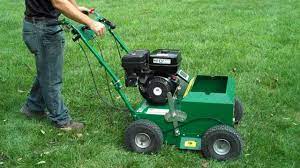
Summer Grass Seed Conclusion
Planting grass seed in the summer can be a challenge, but by choosing the right type of grass and following the proper seeding process, you can ensure success. Fescue is not well-suited for summer planting in Southwest Missouri, but Bermuda grass is an excellent option that can thrive in the hot and dry conditions of the region. By using an overseeder, fertilizing, and watering correctly, you can establish a beautiful and resilient lawn or athletic field that will stand up to the summer heat.
Looking for someone to overseed your lawn with fescue or Bermuda? Click here to get a quote from Midwest Turf Pros.
